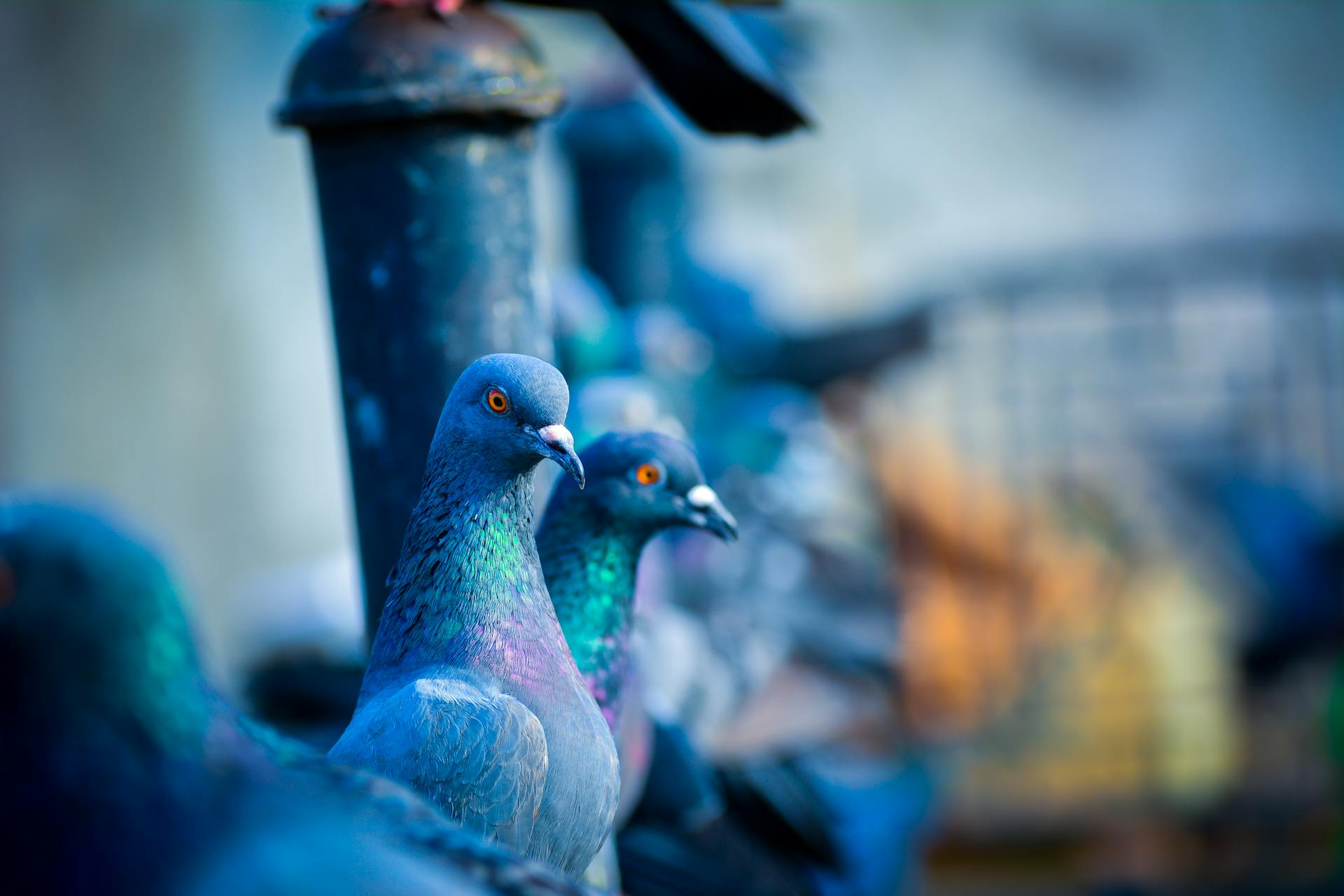
If you’re looking for a way to repel squirrels that are wreaking havoc on your property, you might be surprised to hear that there is actually a scent they despise. You see, when it comes to deterring squirrels, smell is key!
Many experts have found that a strong citrusy odor has proven successful when attempting to ward off these pesky critters. Both fresh and dried citrus rind have been effective in driving away the furry creatures. Regardless of what type of citrus aroma you use (ie orange, lemon or lime), the sharp and acidic smell will often do the trick!
In addition to using various items with high levels of citric acid scents as deterrents for squirrels, some suggest creating a unique concoction that includes ingredients such as cayenne pepper flakes and apple cider vinegar. This combination can make an especially potent repellent mix—just be sure not to spray directly onto areas where kids or animals frequently play as this could cause discomfort if they come into contact with it.
By now you may be thinking "how will I take advantage of these scents?" Well, one popular method involves placing pieces of citrus fruits around your property’s perimeter or near specific areas where wildlife frequents—such as bird feeders–to indicate its off-limits status (figuratively speaking). This can help keep squirrel activity down in those areas without bothering humans too much either! Additionally, scattering some homemade cayenne pepper and apple cider solution onto certain spots may also prove helpful in deterring these pests from snooping around your space more often than desired.
Hopefully this answers your question about what scent do squirrels hate - so don't forget next time you think about how best do deal with pesky squirrel visitors: use the power of smell!
A unique perspective: How to Clip Cat's Nails When They Hate It?
What sound do squirrels find most unpleasant?
If you wander into a park filled with lush foliage and make noise loud enough, chances are you’ll catch glimpses of squirrels skittering from branch to branch. But the sound that a squirrel finds most unpleasant is not one produced by humans—it’s an eerie noise generated by other animals. We usually consider these creepy noises as nothing more than background ambiance, but they serve vital biological purposes.
The sound that squirrels find most unpleasant is the vocalizations of owls or hawks. These nocturnal predators announce their presence through powerful hooting calls and have a wide range, making them audible to faraway animals such as squirrels—even during the day! Squirrels use these owl and hawk calls as warnings emanating from potentially lethal threats, so when they hear them one thing is certain: get outta there! When specific predator calls reach the ears of squirrel populations, members quickly disperse and diminish in number in order to survive.
Formless though it may be in our minds at times – this instinctive response speaks volumes about natural selection and how small creatures are finely tuned for survival.
In conclusion, owls don’t just spook people – they spook plenty of wildlife too! So if you ever want to scare away some pesky tree-climbing rodents without scaring yourself too much – just look up (or rather listen!) for an owl call; chances are it will be enough for at least some nighttime critters like squirrels to take off running quick-fast!
What type of food might repel a squirrel?
If you're trying to keep squirrels away from your bird feeder, garden, house, or anywhere near you, you may be wondering what type of food might repel them. The truth is that when it comes to these pesky critters, there is no one single answer. However, there are some foods that may help deter them from getting too close!
One type of food that has been found to have a repellant effect on squirrels is hot peppers. Usually the hottest things can work like a charm when it comes to discouraging the presence of small animals like squirrels around your property. You can use chili flakes or other hot peppers in your garden or use Cayenne pepper spray on areas where they love to hang around - this will create an unpleasant atmosphere for them and make them stay far away!
Another option is garlic cloves. Squirrels hate the smell of garlic so much they will avoid any area with a strong scent of this garlic-family member in the air. You can either plant garlic cloves around your garden or sprinkle some crushed ones in problem spots - this should definitely do the trick!
Finally, certain nuts such as almonds and walnuts could also be used as an effective way to repel these fluffy creatures from their favorites spots near your home. As these nuts are high fat and calorie content’ not only are they disliked by most mammals but also if eaten frequently can cause digestive problems for squirrels (such as pancreatitis). Therefore a trap with plenty of shelled walnuts/ almonds should distribute enough smelly particles into the atmosphere for any nearby furry friends run away!
To sum it up: Hot peppers/ chili flakes, garlic cloves and certain types of nuts (almonds & walnuts) are some good options when looking foe foods that help you shun away bothersome little critters such as squirrels while protecting both yourself and wild animals living nearby alike!
Do squirrels have a preference for certain smells?
Yes, squirrels do have a preference for certain smells. They use their strong sense of smell to distinguish between different types of food, predators, and even other squirrels. They can even sniff out certain toxic plants and avoid them.
The sense of smell in squirrels is so evolved that they can even recognize the scent of their own family members! This ability helps individual squirrels recognize each other when interacting and keep track of one another if needed. It also has implications for mate selection as well; female gray squirrels have been shown to be more attracted to the scent glands of males with stronger dominant qualities.
In general, however, there is evidence that suggests that females are more likely than males to look for novel odors as opposed to familiar ones; which could explain why females prefer mating with male strangers versus established mates within a population over time. Squirrels also seem particularly partial to nutty scents like hazelnuts or walnuts -- which researchers believe might encourage them towards nutritious food sources over less-nutritious ones they are tempted by.
As far as attracting wild squirrels goes -- there's no denying it: they love fatty aromas! So while some bird feeders may contain options such sunflower hearts or safflower seeds that contain fatty oils through natural processes (which spike up attraction levels!), suet cakes specifically designed for birds often offer higher levels reward-wise compared to seeds - making it much easier for wild backyard visitors like foxes or grey-haired jays take notice too!
You might like: Hate Food
How do squirrels respond to unfamiliar aromas?
Squirrels can be very inquisitive animals, particularly when confronted with unfamiliar aromas or scents. In many instances, a squirrel's first reaction to an unknown smell is one of curiosity. If a squirrel smells something it doesn't know, it will likely investigate the source of the odor further in order to determine what it is and if it's worth any further investment – typically food or shelter.
While confronting an unfamiliar smell with curiosity makes sense for some squirrels given their scavenging lifestyle, others may experience different reactions depending on whether the scent signals danger or not. A good example of this is when a predator such as a fox or hawk releases its distinctive musk when entering an area where squirrels are present - those rodents that recognize the smell as being related to potential predation will typically take flight and flee from this scent at top speed!
In general however, most squirrels respond positively toward an unfamiliar scent if they don't sense any type of immediate threat associated with it and will often use their noses as guides for further exploration if they think there might be food involved. As long as there isn't evidence that suggests danger lurking nearby, a curious response to new smells such as those coming from flowers or trees is usually observed by these animals in nature.
What are some smells that might discourage a squirrel?
There’s nothing quite as annoying as a pesky squirrel rummaging through your trash, garden, or bird feeders. To keep them away, many people have tried scaring them with loud noises and getting rid of potential food sources. While those methods may work sometimes, there are also some smells that can be used to help discourage these furry critters from entering your property.
One potent smell that could potentially act as a squirrel repellent is strong white vinegar. Squeeze lemon juice into the vinegar and then pour it around the perimeter of your property to create a barrier that most squirrels won’t cross because of the pungent smell. Additionally, mixing ammonia and water together in an equal ratio can also create an unpleasant smell for squirrels that should drive them away from an area when scattered or sprayed around known entry points.
Cayenne pepper is another great odoriferous alternative to keeping squirrels at bay as its scent seems off-putting to most animals including these rodents. Sprinkling cayenne pepper around any outdoor spaces you want to protect will create a pleasant smell for us but sends plenty of warning signals for critters who shouldn’t step foot on the premises! Other spices like garlic powder and mint tea bags might also work in warding off curious intruders such as birds or other small animals like skunks and raccoons if those are frequent issues where you live!
Overall there are many smells out there that could potentially scare off pesky little pests like squirrels from invading your space – hopefully one or more of these tips will help keep unwanted guests away without fail!
Is there a specific smell that squirrels avoid?
No, there is not a specific smell that squirrels avoid. However, they definitely have preferences when it comes to odors. Squirrels tend to travel away from areas with overly pungent smells such as rotting food or strong chemical smells and instead prefer areas with more subtle scents. This is because their sense of smell plays an important role in their way of life; they track and remember food sources they have visited and predators they may have encountered by scent. As a result, squirrels are extra cautious when approaching new environments since the wrong odor may mean something dangerous lies ahead!
Featured Images: pexels.com

